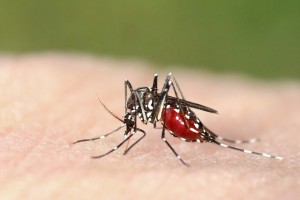Congratulations! You finally decided to take the plunge and go to Africa for the first time. You probably have questions and maybe some confusion about where to go, what to do, what the dangers and risks are, and what to expect in terms of culture, customs and language. So here are the answers to some common concerns, plus some general advice and tips.
Where should I go?
You probably have a type of trip or a preferred activity in mind already, whether it be a safari, urban exploration, an adrenaline adventure, or a beach holiday. If so, it’s best to consult a travel agent who specializes in Africa (or read through the articles on this website) to research the best spots for your activity. There will likely be many places on the continent to do what you have in mind. Your preferred style of travel will also determine where you should go. For example, if you are prone to culture shock and prefer a more “Western,” first-world experience, places like South Africa and Namibia are a good bet. If you want “gentle” exposure to traditional African culture, try Ghana, Uganda, Kenya, Tanzania, Botswana, or Rwanda: all are safe, relatively free of bureaucracy and hassles, and easy to travel in. In fact Accra, the capital of Ghana, feels more like an American beach town than a big African capital in many ways. If you want a “combination” holiday that includes golf, wine tasting, beaches, wildlife and city exploration, try South Africa. Kenya is great for safaris, beaches, and native cultural exploration. Namibia is known for windsurfing and dune buggying. And on and on.
How do I get there?
Isn’t Africa a long, long way from anywhere? Depends where you are coming from. If you are coming from the U.S., it will take at least a day to get there. For example, non-stop flights from Atlanta to Johannesburg take about 15 hours, but then you have to factor in flight time getting to Atlanta from your home city, and from Jo’burg to your onward destination. So you’re probably looking at at least a day of travel, unless your transatlantic flight begins near your home city and ends near your destination city. If you are coming from the UK, North Africa is the easiest region to get to, with flights to Marrakesh or Tunis taking only three hours or so; flights to eastern and southern Africa take 10 to 12 hours. Hub cities are Heathrow (UK), Nairobi, Dubai, Paris and Johannesburg. (See this article on airlines and flight routes for more information on the quickest and easiest ways to get to Africa from your home base.)
Will I be able to communicate?
If you are English-speaking you will have a pretty easy time getting around. South Africa, Namibia, Nigeria, Kenya, and Botswana are probably the most fluent in English, but people in most larger African cities have at least some grasp of English, even if it’s not one of the official languages there. In Mozambique and Angola the lingua franca is Portuguese, in large parts of west Africa it’s French, and in north Africa it’s a combination of Arabic and French. But even in these countries, if you are going on a tour or safari booked through an English-speaking company, the guides will know English. And if you encounter a person who doesn’t speak English at all, a combination of smiles and gestures will usually get your point across.
Will I catch a disease?
No, not if you follow some elementary precautions. Get vaccinated according to the requirements of the country you are visiting (the CDC has a list here). Commonly required vax are yellow fever, typhoid, meningococcal meningitis, rabies and hepatitis A. You’ll also want to make sure you have boosters of vaccinations you had as a child, such as hepatitis B, diphtheria, tetanus, measles, mumps, rubella and polio. These diseases may have been wiped out in developed countries, but still exist in pockets of Africa. Malaria is also an issue in many countries. Take anti-malarial drugs if required, and wear bug repellent. Insect repellent will also ward off mosquitoes that carry dengue fever. If you’re staying in a safari lodge, they will most likely have mosquito nets for you to sleep under, and will also warn you about how to avoid the tsetse fly, which can cause sleeping sickness. Another important thing to bear in mind is that you shouldn’t drink from lakes or rivers, because bilharzia and giardia can be present in the water. To avoid AIDS, use a condom if you have sex. It’s as simple as that.
Will I be beset by beggars and scammers?
In some places you will encounter beggars, because there is a lot of poverty in Africa. This may make you uncomfortable if you are not used to it. The best way to deal with beggars is to either politely say no, or if you are so inclined, give a few coins or some food you may have on you. Scammers usually come in the form of taxi drivers who try to route you to a different hotel than the one you asked for, or those who offer something for free (like a tour or cup of tea). In the first instance, demand to go to the hotel of your choice before getting in the cab. In the second instance, bear in mind that nothing is free. If you get on the camel or take the tour, you’ll probably be expected to pay up in order to get back to where you started, or to buy something at a store they lead you to.
Advice and tips:
Slow down and lighten up: Things don’t always run on a strict schedule in Africa, and not all tasks are done to a German level of precision. (Actually, there are a lot of people of German descent in Namibia or South Africa, so things may run more efficiently there.) All joking aside, it’s common in Africa to have slow or uninterested service in restaurants, buses and trains that rarely leave on time, hotel reservations that get lost, cars that break down a lot, roads with potholes galore, and spotty electric and phone service. You can get angry and worked up about this — which won’t fix the problem and will only serve to ruin your trip — or you can just laugh and say “that’s Africa.” Locals manage to live with it, and so can you if you manage your expectations.
Don’t exchange money on the street. Lots of vendors will try to tempt you with promises of a better rate, but you don’t know if they will cheat you or rob you. It’s also illegal and unnecessary for the few dollars you’ll save.
Don’t get bent out of shape by unwanted attention: just ignore it. If you’re white, you’ll probably get lots of stares and even people saying things to you in some places (except in countries like South Africa, where Caucasians are commonplace). This is mainly because white people are a novelty, and you probably look unusual to them. Women may get extra stares and attention from men, because many African cultures are macho, and men are conditioned to pursue women. But African women are also conditioned to ignore them, which is a tactic you should try to emulate. If you find yourself the object of wolf whistles and unwanted eye-groping, you may have to suppress your Western instincts, and refuse to meet strange mens’ gazes with eye contact and a smile. A neutral face and downcast eyes say “I’m not interested.” If anyone gets grabby or aggressive, a sharp shout or yell will generally shame them enough to stop.



